News
-
 Climate
ClimateHurricane Willa breaks an eastern and central Pacific storm season record
The combined might of eastern and central Pacific hurricanes produced a record-breaking year of storm energy.
-
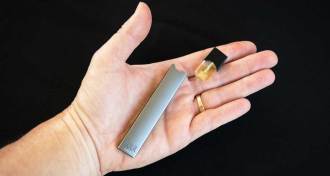 Health & Medicine
Health & MedicineTeens use Juul e-cigarettes much more often than other vaping products
Such devices are more popular among youth than other e-cigarettes or regular cigarettes, a study finds.
-
 Agriculture
AgriculturePlants engineered to always be on alert don’t grow well
Scientists bred a type of weed to lack proteins that help stem the production of bitter chemicals used to ward off insect attacks.
-
 Genetics
GeneticsDNA differences are linked to having same-sex sexual partners
Genetic differences are associated with choosing same-sex partners in both men and women.
-
 Health & Medicine
Health & MedicineNew therapies pack a triple-drug punch to treat cystic fibrosis
In testing, a triple-drug therapy significantly improved lung function in cystic fibrosis patients with the most common disease-causing mutation.
-
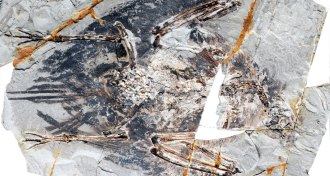 Paleontology
PaleontologyIn a first, scientists spot what may be lungs in an ancient bird fossil
Possible traces of lungs preserved with a 120-million-year-old bird fossil could represent a respiratory system similar to that of modern birds.
-
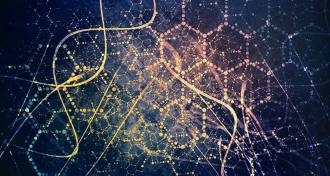 Artificial Intelligence
Artificial IntelligenceArtificial intelligence crowdsources data to speed up drug discovery
A new AI that judges whether drugs will interact with certain proteins can train on data from multiple sources while keeping that info secret.
-
 Archaeology
ArchaeologyThe water system that helped Angkor rise may have also brought its fall
A complex water system magnified flooding’s disruption of the medieval Cambodian city of Angkor.
By Bruce Bower -
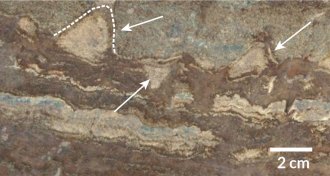 Earth
EarthThese ancient mounds may not be the earliest fossils on Earth after all
A new analysis suggests that tectonics, not microbes, formed cone-shaped structures in 3.7-billion-year-old rock.
-
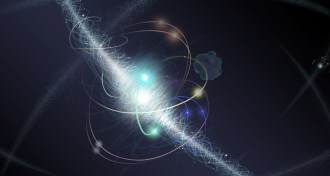 Particle Physics
Particle PhysicsWhat the electron’s near-perfect roundness means for new physics
The electron remains stubbornly round, meaning we may need to build beyond the Large Hadron Collider to find physics outside of the standard model.
-
 Health & Medicine
Health & MedicineA mysterious polio-like disease has sickened as many as 127 people in the U.S.
Medical experts are trying to trace the cause of 62 confirmed cases of acute flaccid myelitis this year.
-
 Neuroscience
NeuroscienceTo unravel autism’s mysteries, one neuroscientist looks at the developing brain
Autism researcher Kevin Pelphrey focuses on understanding signs of the disorder in the developing brain, which could shed light on the condition.